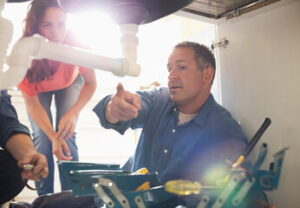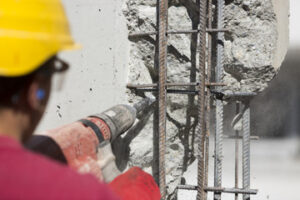Window Replacement Ellicott City, MD is one of the most cost-effective upgrades homeowners can make to their homes. And, when done right, it also adds significant resale value.

Visible signs of damage like rot, soft frames, or leaking hardware indicate it’s time for replacement. Ignoring these issues increases energy costs and creates security risks.
Damaged windows can cause drafts, increase energy costs and be a security risk. In some cases replacing the window may be the better option, but in most scenarios a repair is the way to go.
A damaged window can mean anything from a cracked glass pane to a shattered frame or even just a ding in the wood. Cracks, chips and dents are easy enough to repair with the help of a handyman or glazier.
Windows that have suffered significant damage or are showing signs of wear and tear should probably be replaced, as ignoring such problems can lead to more extensive repairs down the road. Window replacement can address the rattling of the windows, ease of opening and closing and energy efficiency as well as rot in the frame, water leaks around the window and more.
Old windows that are painted and in good condition can often be repaired. Minor chips in paint are easy to touch up, and wood rot is generally an easy fix as long as the wood is not too dry and you use a quality wood filler.
If your wood has serious rot, however, it will be costly to repair. Replacing rotten sills, frames or muntins can be expensive, and in some cases a full replacement is the only option.
Aesthetics are another consideration, especially for older homes and historic districts. While new windows offer many advantages over old ones, they do not always match the subtle design details of older buildings. In addition, new windows may not be as energy-efficient as original windows.
Restoring your old windows is a great way to maintain the history of your home while enjoying its beauty and function. However, homeowners should be prepared for a commitment to regular maintenance. Restored windows will need to be repainted or refinished regularly, and old glass can be difficult to repair or replace. Energy-efficient features, such as double or triple-pane glass with low-E coatings, are available for modern replacements that can improve comfort and reduce utility bills without compromising the aesthetic of your home.
Water Infiltration
Water infiltration is one of the most serious problems caused by poor window installation. It’s not only detrimental to the appearance of your home, but it also weakens its inner structure and increases your energy bills.
It also creates a humid environment that is perfect for the growth of mold and mildew. This is a serious health hazard for your family. Besides, it can degrade the quality of your windows, causing them to lose their functionality and efficiency.
The best way to protect your windows from water damage is to install new ones with a tight seal. You can achieve this by replacing the old weatherstripping with a high-quality alternative. You should also consider a flood-resistant frame for future storms.
Another sign of a leaky window is sagging frames or paint that’s bubbling and peeling. This is a result of extended moisture exposure, which can cause wood fibers to break down. Moisture in your windows can also cause rot, which damages the structure of your home and requires replacement.
A clogged drainage system is another common source of window leaks. This occurs when the drainage channels are blocked or not designed to handle heavy rainfall. Over time, this can cause the window to sag and deteriorate, leaving it vulnerable to air and water infiltration.
Water leaks also create an ideal environment for fungi and bacteria to grow in your house, which can lead to serious health issues. It’s important to get the leaks fixed as soon as possible.
Lastly, leaking windows create drafts that can affect your home’s energy efficiency and insulating capabilities. It can cause the cool air to stay inside during summer and the warm air to escape during winter, leading to higher energy bills.
Lastly, you should also watch out for signs of excessive condensation around your windows. Excessive condensation is a sign of an impending window leak and can be addressed by using a waterproof sealant. You can find this type of product at most hardware stores and follow the instructions on the package. In addition, you can replace your old insulation with a new and improved version to increase the insulating properties of your home.
Energy Efficiency
Energy efficiency has become a prominent concern in window design, and homeowners are rightly concerned about how their windows impact home heating and cooling costs. The good news is that modern replacement windows have a range of features that maximize energy efficiency.
Efficient windows reduce energy consumption by minimizing heat transfer between indoor and outdoor environments. This reduces the load on your heating and cooling system, resulting in lower utility bills and enhanced comfort throughout the year.
In addition, effective window replacements are insulated to prevent air leakage, which is one of the biggest causes of high energy bills. Additionally, many new windows feature low-emissivity coatings that reflect a portion of the sun’s harmful ultraviolet (UV) rays. This helps to protect carpets, paintings, wood, and other valuable furnishings from fading and discoloration.
When shopping for efficient replacement windows, look for the ENERGY STAR® label. This will provide you with a variety of information about the window’s performance, including its solar heat gain coefficient (SGHC), UV percentage, and infrared percentage. The SGHC measures how much solar heat comes through the window, while the UV and infrared percentages indicate how well the window blocks those rays.
Also, consider the number of glass panes in your new replacement windows. Double-pane windows offer superior insulation than single-pane windows. The spacer, or bar, that separates the panes also plays a big role in the window’s energy efficiency. At Infinity, we use a patented stainless steel spacer that has the lowest seal failure rate in the industry.
It is important to remember that while energy-efficient windows have a higher upfront cost, they pay for themselves in lower energy bills. Additionally, replacing your old windows with energy-efficient models will help to reduce the demand for nonrenewable fuels and greenhouse gases that harm the environment. When it comes to reducing your carbon footprint, few improvements can be as easy and affordable as upgrading to energy-efficient windows.
Aesthetics
Whether your windows are worn-out or simply outdated, replacements offer a way to refresh your home’s aesthetic. The right design complements your architectural style and resonates with your personal taste. If you’re unsure which options will best suit your home, talk with a professional. An experienced window and door specialist can provide you with detailed information on the styles that coordinate well with specific decor styles, as well as the window and frame’s durability and energy efficiency ratings.
Window replacement can also be a great opportunity to upgrade your window frame material. Wood windows offer classic aesthetics that complement both traditional and contemporary homes, while vinyl frames offer sleek lines for a modern look. Additionally, many replacement windows are available in specialty shapes like circles, full circle, octagon, transom, and palladium to fit unique spaces.
Another important consideration is the window’s operation and how easy it is to open and close. This is especially important if you live in an area with extreme weather conditions. If you have trouble opening or closing your windows, it could indicate that the components are wearing out or a problem with the natural settling of your home.
Finally, you may want to consider the insulating performance of your new windows. Older windows don’t always do a good job of keeping hot air out in the summer and cold air in during the winter, which can increase your energy costs over time. However, new replacement windows often include features like Low-E glass and argon between panes that help regulate indoor temperature and reduce your energy costs.
Window replacement is not a do-it-yourself project. It’s important to work with a professional installer who can ensure that your new windows are properly installed, sealed, and caulked, which prevents water leaks and air infiltration, and improves the function and aesthetics of your home. A professional will also be able to recommend the best type of window for your home, including options that enhance your home’s curb appeal while remaining durable and functional.


